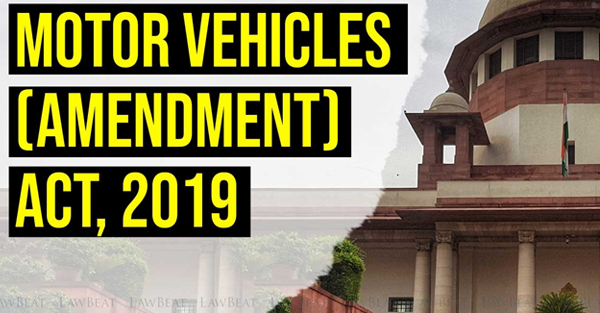In a significant development in Indian legal jurisprudence, the Bombay High Court has made an important ruling regarding the relationship between Mediclaim insurance and compensation under the Motor Vehicles Act, 1988. The case, The New India Assurance Co. Ltd. v. Mrs. Dolly Satish Gandhi & Anr., has set a crucial precedent, affirming that the compensation a road accident victim is entitled to under the Motor Vehicles Act cannot be reduced by the amount they receive through their Mediclaim policy.
This judgment holds immense importance for both legal professionals and insurance policyholders as it addresses the interaction between personal health insurance policies and statutory compensation for road accidents.
The Case at a Glance:
The case involved Mrs. Dolly Satish Gandhi, a claimant who had been injured in a road accident. She had an ongoing Mediclaim policy with New India Assurance Co. Ltd., which reimbursed her medical expenses following the accident. However, the insurance company argued that the compensation she sought under the Motor Vehicles Act should be reduced by the amount already covered by her Mediclaim policy.
The core issue of the case was whether the amount received through Mediclaim insurance should be deducted from the compensation under the Motor Vehicles Act. The Bombay High Court ruled in favor of the claimant, confirming that Mediclaim benefits should not be deducted from the compensation for accident victims under the Motor Vehicles Act.
Key Points from the Judgment:
1. Mediclaim as a Separate Contract:
The court clarified that Mediclaim insurance is a separate contractual agreement between the insured (the policyholder) and the insurance company. It is an individual policy meant to cover medical expenses, and its purpose is to assist the insured with health-related costs, not to reduce the compensation provided to them under the Motor Vehicles Act. The Motor Vehicles Act, on the other hand, is a statutory provision that grants accident victims compensation to cover a wider range of damages, including medical expenses, loss of income, pain, and suffering.
2. Motor Vehicles Act Compensation is a Statutory Right:
The compensation under the Motor Vehicles Act is not based on contractual agreements with insurance companies but is a statutory right granted by law. The law recognizes the financial and emotional hardships caused by road accidents, and the compensation is meant to ease these burdens. As such, it cannot be reduced by any other insurance payments or reimbursements, including those from Mediclaim policies.
3. No Deduction from Compensation:
The judgment stressed that the compensation awarded under the Motor Vehicles Act should not be diminished by the amount the claimant has received through their Mediclaim policy. The court observed that the purpose of compensation under the Motor Vehicles Act is to provide complete relief to the victim, and this should not be limited by any insurance settlements that may have occurred separately.
Why This Ruling Matters:
1. Ensuring Full Compensation for Accident Victims:
This ruling is a win for accident victims, ensuring they receive full compensation for the damages they suffer due to road accidents. The law recognizes that the costs of an accident go beyond medical treatment — they can include loss of income, emotional distress, and long-term physical disabilities. This decision ensures that victims are not shortchanged, even if they already have Mediclaim coverage.
2. Clarifying the Relationship Between Mediclaim and Accident Compensation:
The ruling clears up any confusion between the roles of Mediclaim policies and the compensation provided under the Motor Vehicles Act. Many people may have been under the misconception that having Mediclaim would reduce their entitlement to compensation under the Motor Vehicles Act. This decision ensures that these two forms of financial relief can coexist, and that accident victims can benefit from both without one affecting the other.
3. Protection for Accident Victims:
This decision protects accident victims by ensuring they are not penalized for having personal health insurance. Mediclaim policies were intended to cover immediate medical costs, but they do not address the broader range of consequences of a road accident, such as loss of earnings and long-term rehabilitation costs. The ruling ensures that victims of road accidents are able to secure a comprehensive package of support, without being made to choose between insurance benefits and statutory compensation.
4. Setting a Legal Precedent:
The ruling sets an important legal precedent that will help future claimants in similar situations. As road accidents remain a common cause of injury and death in India, it is crucial to have clear legal guidelines regarding how insurance benefits and compensation under the Motor Vehicles Act interact. This judgment gives future claimants the confidence to seek both forms of relief without fear of losing out on one due to the other.
Impact on the Insurance Industry:
This decision may have broader implications for the insurance industry as well. Insurers may now need to reevaluate their practices concerning the interaction between Mediclaim policies and claims under the Motor Vehicles Act. Insurance companies could face increased scrutiny over attempts to offset compensation amounts based on separate insurance claims, which could lead to a shift in industry practices and policies.
Conclusion:
The Bombay High Court’s judgment in The New India Assurance Co. Ltd. v. Mrs. Dolly Satish Gandhi & Anr. is a crucial step toward protecting the rights of accident victims in India. It ensures that they are not unfairly deprived of the full compensation they are entitled to, regardless of any personal health insurance they may have. By clarifying the distinction between Mediclaim insurance and compensation under the Motor Vehicles Act, the court has helped establish a clearer, more equitable legal framework for dealing with road accident claims.
This ruling is a vital reminder that accident victims must be provided with adequate financial support to recover from both the immediate and long-term impacts of a road accident, and insurance policies should not undermine this right.


 India
India  Canada
Canada

